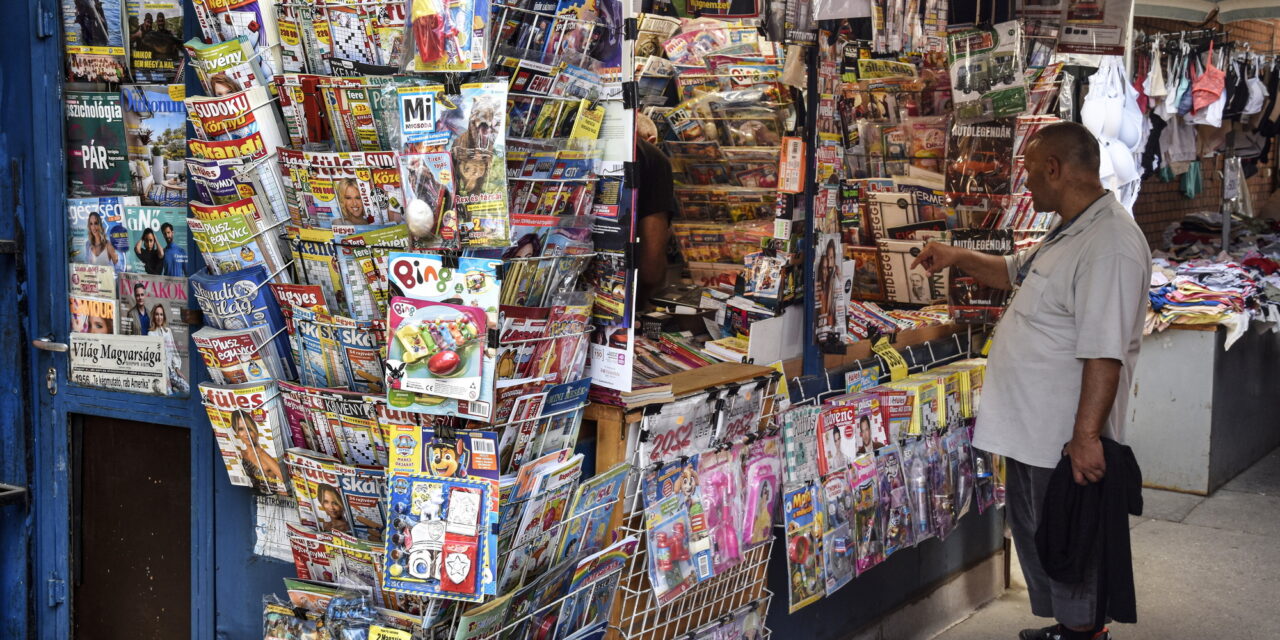Although freedom of the press in Hungary is constantly criticized that the operation of the opposition media is impossible, the opposite is true.
They write that while there were thirty-six mediums critical of the government in the domestic media market in 2010, by 2024 their number had risen to sixty-one. The sustainability of editorial offices is shown by the fact that thirty-four websites critical of the government started operating in ten years
"Although the freedom of the press in Hungary is constantly criticized that the operation of the opposition media is unacceptable, the exact opposite is true," emphasized the Nézőpont Institute.
They pointed out that the platforms of the Hungarian media market that provide critical and friendly coverage of the government not only reach almost everyone, "but almost everyone also uses them for the purpose of obtaining information" .
In detail, they listed that seven out of fifteen print media are government critics and eight are government supporters, twelve out of thirty-three electronic media are government critics and twenty-one are government supporters, thirty-seven out of fifty-three online platforms are government critics and sixteen are government supporters. In addition to these, the survey includes the additional thirty-five public service media platforms and programs, on the basis of which the analysis was prepared.
Seventy-one percent of the adult population (5.6 million people) get their information from sources critical of the government, and sixty-four percent (5.1 million people) from pro-government sources, the analysis stated. It was also noted that the proportion of those who only get information from one type of media is low.
It was pointed out that
the media in Hungary are easily accessible to anyone throughout the country, regardless of their attitude towards the government and their political affiliation.
The printed daily and weekly newspapers are distributed nationally, the major electronic media have national coverage, they said. They also pointed out that the Hungarian population has a particularly high level of access to devices: more than eight million people can access TV channels, nearly ninety-three percent of households have broadband Internet, and there are more than 14 million mobile phone subscriptions in the country, far exceeding the population.
Hungary's most important media companies critical of the government are constantly increasing their income, which has doubled in eight years, they pointed out based on the investigations. It was written that the publishers of the opposition press are profitable every year as a whole, their total after-tax profit in 2023 was about HUF four billion.
In the analysis, it was also emphasized that in recent years more and more income from abroad has contributed to the publishing profits of media critical of the government, but the exact amount and source of these cannot be read from the official reports.
The Nézőpont Institute came to the conclusion based on searchable data that every year at least one billion forints from abroad supports the activities of media critical of the domestic government.
The range of foreign donors is wide, including foreign governments - particularly the United States of America -, international organizations - including the European Union (EU) - as well as international foundations and funds - he wrote.
"In today's wartime conditions, it can also pose a (national) security risk if foreign actors try to put pressure on the government (and public opinion) of Hungary through media critical of the government, for example," emphasized the Nézőpont Institute. They stated that the acceptance of grants and orders from abroad is not prohibited due to freedom of the press, but at the same time, according to them, the phenomenon points to "grey zone of the Hungarian media market"
In its analysis, the Nézőpont Institute also examined the independence of the Hungarian media authority. As written, it is also strong compared to European Union practice. They explained that the media authorities of many EU member states operate under the authority of governments, often directly under ministries. On the other hand, the Hungarian National Media and Communications Authority and its Media Council are subordinated exclusively to a pivotal law requiring a two-thirds majority in the Parliament, he pointed out. They added that the president and members of the Media Council are elected by the legislative power, the budget of the media authority is provided by the Parliament and their own resources, thereby creating independence from the government.
It was also established that the Hungarian media authority punishes pro-government media more often and more severely than government critics. According to the Nézőpont Institute, more than two-thirds of the cases sanctioned between 2012 and 2023 were government-friendly or public service, while less than one-third were related to media critical of the government.
Sixty-two percent (HUF 385 million) of the imposed fines had to be paid by pro-government or public service media, while only thirty-eight percent (HUF 235 million) had to be paid by media critical of the government, they noted.
MTI
Cover photo: MTVA/Commissioner: László Róka













